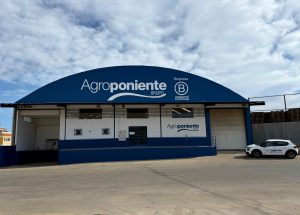To quickly illustrate this problem, we can use the examples of sugar beet and rapeseed, which, if no plant protection alternative is found immediately, could suffer crop losses of up to 50%. In specialised sectors, such as nurseries, losses could reach up to 80%. And this is just the tip of the iceberg.
At a European scale, what used to be the exception is rapidly becoming the norm and, in a few years, all major agricultural productions in our continent could find themselves at a dead end.
A shrinking toolbox, and growing frustration
Since 2001, the number of active plant protection ingredients available has dropped from 900 to fewer than 470. Since June 2019 alone, we have lost 85 substances, and in no case have conventional alternatives been offered. Moreover, the pace of these withdrawals is accelerating dramatically. This looming shortage is a direct consequence of the plant protection product authorisation system, which dates back to 2009 and whose framework has become increasingly rigid.
In 2022, the attempt to turn the ‘Directive on the sustainable use of pesticides’ into a Regulation (the well-known ‘SUR’ proposal) resulted in one of the Commission’s most spectacular failures in agricultural policy. While some welcomed it with satisfaction, others regretted it.
However, amid that uproar, those most affected—namely, farmers—were left without solutions and in an equally precarious situation.
If we had to illustrate the risks posed by this lack of concrete political response with a single compelling example, it would be the striking case of the potato: late blight, the same disease that caused the Irish Potato Famine, still threatens crops today. While in the past farmers had multiple tools to combat this persistent threat, their options are rapidly diminishing. Thus, if immediate action is not taken, potato yields could drop by up to 50%, putting at risk farmers’ livelihoods, food security, and European sovereignty.
A window of opportunity—but time is running out
As the years pass, we are now in a race against time, and soon Europe will no longer be able to afford theoretical debates, as it will have to face a harsh reality—whether due to increasingly frequent crises affecting our production or the growing inconsistency and blatant injustice around agri-food imports that do not comply with any of our standards or respect any of our bans.
Nevertheless, the Commission now seems to offer a ray of hope for the sector. The EU’s main institution is fully aware of the problem and the challenges it poses both for the internal market and for our imports. The ‘Vision for the Future of Agriculture’ has established clear and firm principles in this regard, such as the guideline of ‘no bans without alternatives’. However, this now needs to be translated into practice through concrete measures, which we hope to see reflected especially in the simplification package announced for autumn 2025.
RELATED NEWS: UK delays EU phytosanitary checks on fresh produce until 2027
From Copa-Cogeca, together with the ‘Plant Health’ Working Group, we are presenting four simple principles that could help avoid the most damaging scenarios and offer some perspective to farmers and stakeholders in the industry.
Four clear demands for a realistic transition
First, the current reauthorisation method must be reviewed, and a fairer approach to assessing the cost-benefit ratio and risk must be restored. Too many active substances are being removed for reasons that, in our opinion, are not sufficiently grounded in scientific knowledge or real risk.
Second, it is clear that we must support, promote, and accelerate the authorisation of alternative solutions, such as biocontrol plant protection products and new genomic techniques. However, we understand that farmers cannot be expected to find alternatives overnight. Research and market entry take time, so we must consider practical transitional arrangements to avoid standstills.
Third, initiatives to provide agronomic and technical support to farmers during the transition to new crop protection methods must be supported.
Finally, it is essential that, as stated in the Commission’s Vision, compliance with European standards is reinforced in our trade policy wherever possible. Otherwise, just as we experience carbon leakage, we will increasingly suffer from plant protection leakage.
On this issue, as in many others in the agricultural field, Europe is playing for its future and its food security in the coming months. Between political dogmatism and an unsustainable status quo, there is a reasonable path that can be taken by making pragmatic decisions and engaging in dialogue with representatives of the farming sector.


















